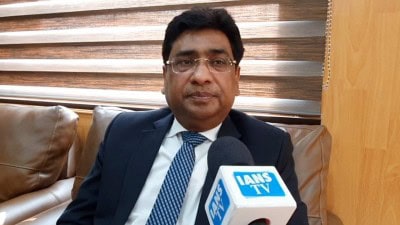New Delhi, Dec 1 : Railway Board Chairman and CEO V.K. Yadav said on Tuesday that once introduced, the national transporter’s new “zero based timetable” will cut down travel time in long distance trains between 30 minutes and six hours on an average.
Addressing a virtual press conference here, Yadav said that the timetable, to be introduced by the Railways once the Covid-19 pandemic situation stabilises, works on the premise that the existence of every train and stop must be justified based on goals of providing transportation with optimum and efficient utilisation of the available resources.
“The idea is to increase the occupancy of poorly patronised trains and to reduce waitlisting in those trains which are in high demand. Once the timetable is operational, the journey time of long distance trains will be reduced between half-an-hour and six hours on an average. Under this timetable, the speeds of trains will also increase,” Yadav said.
He said that no stoppages or halts will be done away with but that they will merely be rationalised.
He said that professional studies are being conducted by the Railways to see which trains and halts need to be rationalised, which trains are to be merged, assuring people that they will not be inconvenienced in any way.
Yadav also said that the Railways is operating just 50 per cent of its total fleet at the moment due to the coronavirus crisis. As of now railways is operating 908 mail or express trains as compared to 1,800 trains pre-Covid-19 pandemic, he said.
“This is 50 per cent of the total mail or express trains,” he said.
The CEO said 20 special clone trains are running as of now on the routes with higher demands.
Yadav further said that in addition, 566 trains were operated as festival special trains from October 20 to November 30.
He also said that 238 services of the Kolkata Metro were started in July, while 843 services of suburban services started in the state in November.
He said that 2,773 Mumbai suburban services were being operated as of now.
Of the 908 trains currently running, 460 are running at 100 per cent occupancy, 400 are running at an occupancy between 50 per cent and 100 per cent, 32 trains operating at less than 50 per cent capacity and 16 trains running with less than 30 per cent occupancy.
Disclaimer: This story is auto-generated from IANS service.

